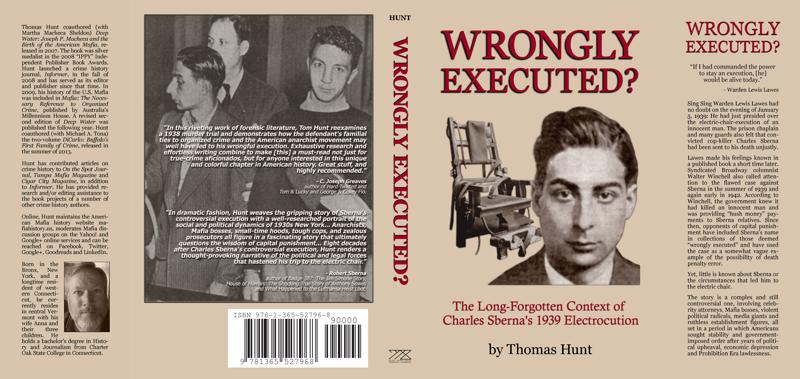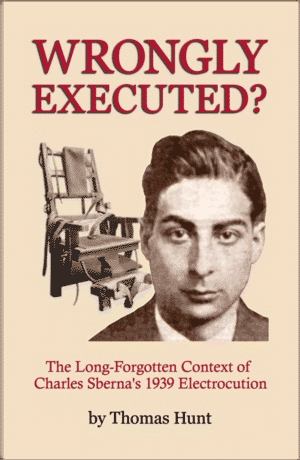Background information on 'Wrongly Executed: The Long-Forgotten Context of Charles Sberna's 1939 Electrocution.'
Sing Sing Warden Lewis Lawes had no doubt on the evening of January 5, 1939: He had just presided over the electric-chair-execution of an innocent man. The prison chaplain and many guards also felt that convicted cop-killer Charles Sberna had been sent to his death unjustly.
Lawes made his feelings known in a published book a short time later. Syndicated Broadway columnist Walter Winchell also called attention to the flawed case against Sberna in the summer of 1939 and again early in 1942. According to Winchell, the government knew it had killed an innocent man and was providing "hush money" payments to Sberna relatives. Since then, opponents of capital punishment have included Sberna's name in collections of those deemed "wrongly executed" and have used the case as a somewhat vague example of the possibility of death penalty error. Still, little is known about Sberna or the circumstances that led him to the electric chair.
The story is a complex and controversial one, involving celebrity attorneys, Mafia bosses, violent political radicals, media giants and ruthless establishment figures, all set in a period in which Americans sought stability and government-imposed order after years of political upheaval, economic depression and Prohibition Era lawlessness.

Hardcover dust jacket.
The story of Charles Sberna first came to author Thomas Hunt's attention during research into capital punishment errors. Archived newspaper columns by Winchell revealed a story worthy of retelling. Conversations with publisher Rick Mattix relating to the startup of the On the Spot Journal of "gangster era" crime history led Hunt to assemble an article on the Sberna case for the journal's December 2006 issue.
That first article noted the relation by marriage of Charles Sberna and the Morello-Lupo-Terranova clan, which had been a major influence in early New York organized crime. Sberna's own family background was unknown until later research into Amedeo Polignani of the NYPD shed light on the involvement by Charles Sberna's father Giuseppe in the anarchist-terrorist bombings of the 1910s. The decision to fully explore the Sberna case soon followed.
Errata:
The following errors have been noted in the text of Wrongly Executed? :
- Page 90 of hardcover/paperback, late in Chapter 3, paragraph beginning "Schultz quickly decided," last sentence within parentheses: "Preserving town heir control" should read "Preserving their own control". (This error does not appear in e-book formats.)
- Page 183 of hardcover/paperback, after midpoint of Chapter 8, paragraph beginning "Without explanation for," a portion of that first sentence: "suddenly continued returned to" should read "suddenly returned to". (This error does not appear in e-book formats.)
Readers spotting errors in the text are encouraged to report them to the author at wronglyexecuted(at)gmail.com.
